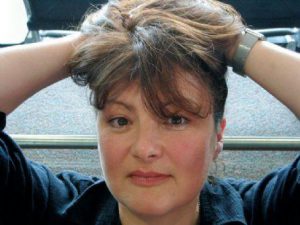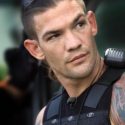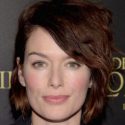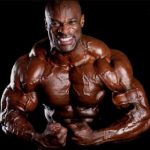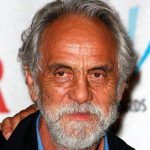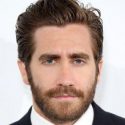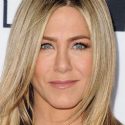Antonia Bird Death
Antonia passed away on October 24, 2013 at the age of 62.
When did Antonia Bird die?
October 24, 2013How old was Antonia Bird when died?
62
Antonia Bird Birthday and Date of Death
Antonia Bird was born on May 27, 1951 and died on October 24, 2013. Antonia was 62 years old at the time of death.
Birthday: May 27, 1951
Date of Death: October 24, 2013
Age at Death: 62
Antonia Bird - Biography
Biography by Aubry Anne D'Arminio [-]Dedicated to the understanding of the human condition, British director Antonia Bird examines the harrowing pain caused by the neglect of human need. Whether the subject is a homeless teenager or a homosexual clergyman, Bird's emphasis on basic human rights is fundamentally the same. Her resulting cinematic approach is realist, aggressive, and visceral, she confronts each scene directly and unforgivingly, distilling the action to extract its pure emotional essence.Bird was born in 1959 to a modest middle-class English family. Her father, a struggling actor, named her Antonia while he enjoyed a rare and brief stint as Antonio in Shakespeare's The Merchant of Venice. Bird's mother, embracing the fact that her husband's employment would be infrequent, provided the household income. She waitressed, cleaned, and sacrificed to support her family. An only child, Bird compensated for her isolation by cultivating a fertile imagination. By the time she was a teenager, her rich fantasy life doubled over into an insatiable penchant for acting. This desire to be an actress was not well-received by Bird's weary and experienced parents. Thus, at the age of 16, the imaginative little girl ran away to join the theater.After spending two years acting at Coventry Repertory, an older and more independent Bird grew interested in stage direction. Shifting gears to become a theater director, she worked her way up from stage management to administration to a thriving directorship at London's National Theatre. She later advanced to serve six years as the Resident Director of the city's Royal Court Theatre (Britain's leading theater for new playwrights) and to work as the Artistic Director of the Theater Upstairs. Bird helmed plays by Hanif Kureishi, Jim Cartwright, and Trevor Griffiths and collaborated with the likes of Ian McKellen, Bob Hoskins, Ben Elton, and Samuel Beckett. Her stage oeuvre championed the liberal and intellectual left: she espoused socialism, feminism, and, overall, humanism. However, so did the majority of her theater audience and soon Bird sought a wider venue for her message: thus, she turned to film.Bird was rejected by Britain's National Film School for being too successful and turned down by the BBC Director's Course, despite having been hired to adapt one of her Royal Court productions for the corporation. Her first screen opportunity came in the form of television when she signed on to direct the first set of England's infamous serial, EastEnders. Situated in Albert Square, a fictional neighborhood in London's East End, the soap opera was immediately heralded for its uncompromising look at urban life. EastEnders tore apart social issues and personal situations in a city environment, letting Bird hone her realist camera eye to her humanist cause. She went on to direct the serial Casualty (a multi-plot drama set in a hospital emergency unit) and several television films, including Inspector Morse: Absolute Conviction and The Men's Room.Bird's move to the cinema began in 1993 with the BBC television film Safe. Based on the true-life experiences of London street kids, Safe is an angry and inspired account of the city's young homeless. This 65-minute plea for social change garnered Bird a Best TV Film Award from the British Academy of Film and Television Arts and the Charles Chaplin Prize for Best First Feature at the Edinburgh International Film Festival. It marked her first collaboration with actor Robert Carlyle, who would star in several more of Bird's movies, and with producer George Faber, who would hand her the script for her next BBC film, 1994's Priest.Chronicling the experiences of a gay cleric and unabashedly revealing his loneliness and alienation, Bird did not intend to offend morality or Catholicism with Priest. Visiting with several clergymen in preparation for the film, she was stunned by their compassion and saddened by their isolation. Priest is not as expressly about sexuality or religion as it is about the very few modern men (gay and straight) who serve the church. The award-winning film received a standing ovation from its audience at The Sundance Film Festival, which included an ordained priest who lauded the film's veracity. Moreover, the film secured an international distribution deal with Miramax -- a welcome first for Bird. Shortly before Priest's American debut, it met with objection from the League for Religious and Civil Rights, the U.S.'s largest Catholic civil rights organization. The group teamed with The Life League to boycott Miramax and its owner, Walt Disney Co., for slandering the church.Meanwhile, Disney had already offered Bird her first 35mm feature, the Drew Barrymore/Chris O'Donnell vehicle Mad Love (1995) which she completed several months prior to the Priest uproar. Bird filmed Mad Love as an R-rated teenage road movie about the forbidden romance between a manic-depressive girl and her well-meaning boyfriend. Her film questioned both institutional and personal solutions to mental illness, as well as parental control. Unfortunately, Disney forced Bird to edit Mad Love into a PG-13-rated adolescent-targeted piece, severely diluting its urgency and effectiveness. The film was a moderate success in the United States, but amassed very little applause for its director.Bird returned to England to film 1997's Face, her acclaimed contribution to the British crime genre. Starring Robert Carlyle as a former activist forced into burglary by disappointment and apathy, Face is both a heist film and an essay on the death of idealism in urban London. It provoked critical comparison to The Long Good Friday and Get Carter for its brutal excellence and its direct approach. Bird did not hesitate to exploit cruelty and violence to drive home Face's message; the film's success solidified her reputation in Britain as a provocative and substantive filmmaker.At the request of Carlyle, Bird followed Face with Fox 2000's Ravenous (1999), a grisly supernatural thriller/satire about cannibalism during the time of Manifest Destiny. Two directors had already abandoned the project, which starred Carlyle and Guy Pearce. Bird's take on Ravenous was as assertive and emotional as with her other films. The picture's bloody focus on cannibalism directly relates the practice to obsession, power, and imperialism. Ravenous received a mixed response from critics and was ignored by audiences, yet it has survived as a cult film.Shortly before Ravenous' release, Bird, Carlyle, and broadcaster Mark Cousins announced the formation of their development company, 4Way Pictures. The group obtained a first-refusal deal with BBC Films and boasts over 12 projects in development. Its potential roster includes Bird's first venture into screenwriting, Rebekka, a semi-documentary about AIDS activist Rebekka Armstrong, a former Playboy Playmate who contracted HIV at 16. In 2000, Bird returned to television to direct Care, a BBC film uncovering child abuse in British foster homes.
